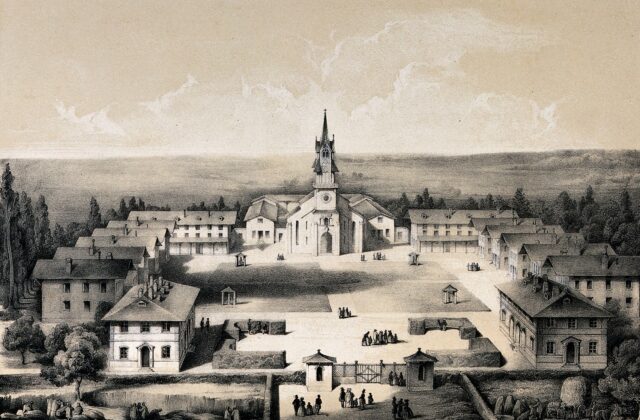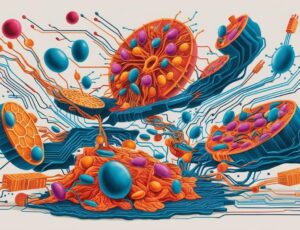Previous research has shown how republican conceptions of freedom have historically been developed in contrast to slavery. We will break new ground by examining in what ways philosophical theorizations of slavery and other forms of involuntary servitude figured in the development of political theories in four key domains: (1) domestic colonialism; (2) relations of subordination within the family; (3) sovereignty and the state; and (4) natural rights and punishment.
In 2023, it will have been 200 years since the opening of the Dutch penal colony at Veenhuizen, now home to the National Prison Museum. In collaboration with the prison museum, we will be organizing a multiday public symposium on the history and ideology behind the Dutch welfare, penal, and labour colonies within an international context. More information to follow.
The above image is an 1844 lithograph depicting the Mettray penal colony in France (known from Foucault’s Surveiller et Punir). The image is publicly available through the Wellcome Collection.








